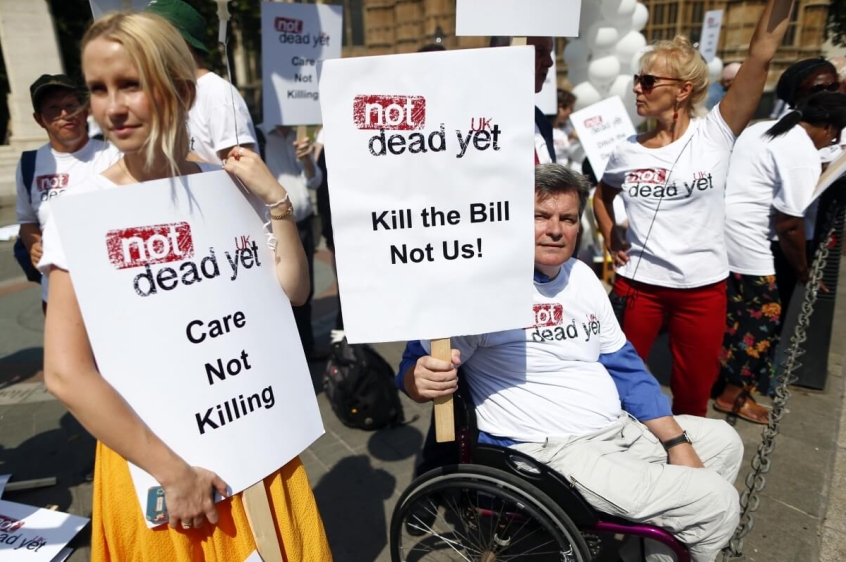
The UK High court dismissed Noel Conway's challenge to the law against assisted dying this morning.
Conway, who is supported by Dignity in Dying, suffers from motor neurone disease. He is challenging the illegality of assisted dying for those with terminal illnesses who have been given six months or fewer to live.
Conway is a member of Humanists UK, which intervened in the case in his favour. The group have promised to assist him as he seeks to appeal the decision given today.
Nancy Collins of Hodge Jones & Allen LLP, who acted on behalf of Humanists UK, commented: 'This is a disappointing decision for those who believe that terminally ill people should have the right to choose the timing of their death.'
However, the decision from the High Court was welcomed by Andrew Williams, chief executive of the Christian Legal Centre. She said,
'These cases are always emotive because all of us want to be kind in the face of human suffering.
'It is vital, however, that we do not lose sight of the key principles at stake, and the implications of any court decision on other people.
'Assisted suicide is wrong in principle. A civilised society does not legislate for the killing of its citizens, especially its most vulnerable. It uses the law to uphold their dignity and to offer the highest protection.
'As well as the principle, in practice, it isn't possible to design suitable protections to make sure that sick, elderly, unwell, depressed or lonely people are not put at risk or put under pressure.' 'Rather than pushing for assisted suicide, which raises huge ethical issues and would be a dangerous move, society should be investing in research into underlying conditions and even better palliative care than we have today.'
In 2015, the House of commons rejected an Assisted Dying Bill.
'Having lost the argument in Parliament two years ago, assisted suicide campaigners have signalled that they will refocus their attention on the courts', Williams noted. 'The current law tempers justice with mercy and provides essential safeguards against abuse. We mustn't allow those safeguards to be undermined'.
CARE's Director of Parliamentary Affairs, Dr Dan Boucher added: 'Our current law exists to protect the vulnerable and weak from being exploited and coerced. It is therefore right that the law today has been upheld'.
'Parliament recently overwhelmingly voted to reject introducing assisted suicide in Great Britain and we should respect the will of Parliament'.













